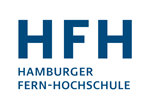Inhalt
- These private unis & FHs offer degree programmes in mechanical engineering
- The best places to study mechanical engineering are in these cities
- Machine engineering: these specialisations and majors are available
- Machine engineering without NC: admission requirements for studying mechanical engineering at private universities
- This is what it costs to study mechanical engineering at private universities
- Dual study in mechanical engineering at private universities
- Distance learning in mechanical engineering at private universities
- Studying mechanical engineering part-time at private universities
- Machine engineering: these Master's programmes are available at private universities
- Job prospects with a mechanical engineering degree
Mechanical engineering is a fascinating discipline that lays the foundation for numerous technological advances.
Working in this field allows you to develop innovative technologies and help shape the future.
As a mechanical engineer, you can count on attractive earning potential and diverse career opportunities.
Private universities open up interesting avenues for gaining qualifications in this exciting field.
In the following, I provide an overview of the various private universities, study locations and subject areas for studying mechanical engineering, as well as the entry requirements and costs of the private providers.
Overview of all Courses
We have a total of 29 courses in the field of Mechanical Engineering. The first 20 top courses are displayed. Use the filter function or our search to discover more courses in the field.
- Distance learning program
- Bachelor of Engineering (B.Eng.)
- 6 Semester
- online
- German or English
- Introduction to Robotics, Introduction to Academic Work, Mathematics II, Scientific and Technical Fundamentals, Mathematics: Linear Algebra, Technical Drawing, Production Engineering, Introduction to …
The bachelor's degree program Robotics deals with the design, development and programming of robotic systems. Students learn how to design and program robots for various application areas such as production, logistics, medicine or household. The program also provides knowledge in areas such as artificial intelligence, sensor technology, control engineering and mechanical engineering. Graduates can, for example, work in the automation industry, in robotics research or in the development of robotic systems for specific application areas. As the application possibilities of robotics continue to increase, the career prospects in this field are very good.
- Distance learning program
- Bachelor of Engineering (B.Eng.)
- 6 Semester
- online
- English
- Engineering: Branches, Methods, Applications, Trends, Introduction to Academic Work, Mathematics: Linear Algebra, Fundamentals of Physics, Introduction to the Internet of Things, Introduction to Compu…
The Bachelor's program in Engineering provides students with a solid knowledge in the field of engineering. Students learn skills to develop and implement complex technical systems. The basic areas of engineering, such as mechanical engineering, electrical engineering, or civil engineering, are covered. During the course of the program, students can also specialize in specific fields. The program is very practice-oriented and typically includes projects and internships in companies. Graduates can work in various areas such as the automotive industry, the electronics sector, the energy sector, or the medical technology field.
- Distance learning program
- Bachelor of Engineering (B.Eng.)
- 6 Semester
- online
- German
- Automation Engineering, Introduction to Scientific Work for IT and Technology, Mathematics: Linear Algebra, Fundamentals of Physics, Introduction to Computer Science, Programming with C/C++, Mathemati…
In the Bachelor distance learning program Mechatronics, you will learn to design mechatronic systems that are used in a wide range of everyday objects, industrial machines, vehicles, and robots. This opens up exciting opportunities for you to shape the future of these innovative technologies.
- Distance learning program
- Bachelor of Engineering (B.Eng.)
- 6 Semester
- online
- German
- Mathematics: Linear Algebra, Fundamentals of Physics, Fundamentals of Chemistry, Engineering Mechanics: Statics, Fundamentals of Construction, Introduction to Scientific Work for IT and Engineering, C…
The Bachelor's distance learning program in mechanical engineering offers excellent training in a highly respected German industrial sector. With a strong focus on future-oriented challenges such as mobility, environmental protection, renewable energies, and Industry 4.0, this program comprehensively prepares students. During their studies, they acquire both technical and scientific competencies crucial for a successful career in areas such as development, plant construction, or production. A particular strength of the program lies in imparting knowledge of process engineering, making graduates versatile professionals in mechanical engineering. With this degree, exciting career prospects in a growing industry are available.
Mechanical Engineering
RFH – University of Applied Science
Mechanical Engineering
Georg Agricola University of Technology
Mechanical Engineering
SRH University Heidelberg
Mechanical Engineering
Hamburger Fern-Hochschule
Mechanical Engineering
Private University of Applied Sciences
Mechanical Engineering
Georg Agricola University of Technology
Mechanical Engineering
FOM University of Applied Sciences
Engineering Mechatronics
hochschule 21 - University of Applied Sciences
Mechanical Engineering
Hochschule der Bayerischen Wirtschaft
Mechanical Engineering
Hamburger Fern-Hochschule
Mechatronics
Private University of Applied Sciences
Process Engineering
Georg Agricola University of Technology
These private unis & FHs offer degree programmes in mechanical engineering
In Germany, there are quite a number of private universities that offer mechanical engineering degree programmes leading to Bachelor's and Master's degrees
Here is a brief portrait of the most important private universities offering mechanical engineering degree programmes:
![]() IU International University of Applied Sciences: With over 100,000 enrolled students, IU is the largest university in Germany. The university is located in Erfurt, but IU also offers its campus study programmes at other locations in Germany as well as via virtual campus. In addition to the campus programmes in business administration and management, among others, the university offers over 100 distance learning programmes as well as a large number of part-time and dual study programmes.
IU International University of Applied Sciences: With over 100,000 enrolled students, IU is the largest university in Germany. The university is located in Erfurt, but IU also offers its campus study programmes at other locations in Germany as well as via virtual campus. In addition to the campus programmes in business administration and management, among others, the university offers over 100 distance learning programmes as well as a large number of part-time and dual study programmes.
 Wilhelm Büchner University of Applied Sciences: The WBH is a private, state-recognised university of applied sciences based in Darmstadt/Hesse. The university was founded as a distance learning university in 1997. In autumn 2022, a total of around 7,000 students were enrolled at WBH. The university focuses on distance learning courses in the fields of technology, industrial engineering and computer science.
Wilhelm Büchner University of Applied Sciences: The WBH is a private, state-recognised university of applied sciences based in Darmstadt/Hesse. The university was founded as a distance learning university in 1997. In autumn 2022, a total of around 7,000 students were enrolled at WBH. The university focuses on distance learning courses in the fields of technology, industrial engineering and computer science.
 AKAD University of Applied Sciences: The AKAD University of Applied Sciences Stuttgart is a private, state-recognised university of applied sciences based in Stuttgart. The university was founded in 1959 and focuses on distance learning and certificate courses in the fields of technology, computer science and business administration. As of 2023, a total of 6,380 students were enrolled at the university. In the Department of Computer Science, the university offers a number of distance learning courses, such as a B.Sc. in Computer Science and a B.Sc. in Data Science.
AKAD University of Applied Sciences: The AKAD University of Applied Sciences Stuttgart is a private, state-recognised university of applied sciences based in Stuttgart. The university was founded in 1959 and focuses on distance learning and certificate courses in the fields of technology, computer science and business administration. As of 2023, a total of 6,380 students were enrolled at the university. In the Department of Computer Science, the university offers a number of distance learning courses, such as a B.Sc. in Computer Science and a B.Sc. in Data Science.
![]() FOM University of Applied Sciences: Alongside Fresenius University of Applied Sciences, FOM is one of the largest private universities of applied sciences and is located in Essen/North Rhine-Westphalia. Founded in 1993, FOM had a total of around 57,000 students enrolled in the winter semester 2020/2021. The study programmes at FOM are aimed at working professionals. Through various flexible time models, the classroom lectures take place parallel to a company job or training. In the field of finance, FOM offers, among others, a Bachelor in Banking & Finance and a Bachelor in Tax Law.
FOM University of Applied Sciences: Alongside Fresenius University of Applied Sciences, FOM is one of the largest private universities of applied sciences and is located in Essen/North Rhine-Westphalia. Founded in 1993, FOM had a total of around 57,000 students enrolled in the winter semester 2020/2021. The study programmes at FOM are aimed at working professionals. Through various flexible time models, the classroom lectures take place parallel to a company job or training. In the field of finance, FOM offers, among others, a Bachelor in Banking & Finance and a Bachelor in Tax Law.
 Dresden International University: Dresden International Unviersity is a state-recognised private university in Dresden, which was founded as a subsidiary of TU Dresden and functions as a network university. It had about 1,631 students in 2022 and maintains diverse cooperations with companies, associations, research institutions and other international universities. Dresden International University offers both Bachelor's and Master's degree programmes in the fields of business, technology and health. Many of the degree programmes are part-time, but dual degree programmes are also offered.
Dresden International University: Dresden International Unviersity is a state-recognised private university in Dresden, which was founded as a subsidiary of TU Dresden and functions as a network university. It had about 1,631 students in 2022 and maintains diverse cooperations with companies, associations, research institutions and other international universities. Dresden International University offers both Bachelor's and Master's degree programmes in the fields of business, technology and health. Many of the degree programmes are part-time, but dual degree programmes are also offered.
![]() RFH – University of Applied Science: The Rheinische Fachhochschule is a private, state-approved university of applied science located in Cologne. Founded in 1985, the university had a total of 6,203 students enrolled in the 2019/2020 winter semester. The RFH operates several research institutes, which work on practice-relevant projects in cooperation with industry partners, making the university an important source of applied research and innovation.
RFH – University of Applied Science: The Rheinische Fachhochschule is a private, state-approved university of applied science located in Cologne. Founded in 1985, the university had a total of 6,203 students enrolled in the 2019/2020 winter semester. The RFH operates several research institutes, which work on practice-relevant projects in cooperation with industry partners, making the university an important source of applied research and innovation.
 Georg Agricola University of Technology: The Georg Agricola University of Technology is a private, state-recognised university of applied sciences located in Bochum, North Rhine-Westphalia. The university was founded in 1816 and is thus the oldest university in Bochum. In winter semester 2020/2021, a total of 2,413 students were enrolled at the university. The university offers degree programmes in the fields of geo-resources and process engineering, mechanical engineering and materials science, electrical engineering/information technology and industrial engineering. Special feature: the university does not charge tuition fees, but only a semester contribution.
Georg Agricola University of Technology: The Georg Agricola University of Technology is a private, state-recognised university of applied sciences located in Bochum, North Rhine-Westphalia. The university was founded in 1816 and is thus the oldest university in Bochum. In winter semester 2020/2021, a total of 2,413 students were enrolled at the university. The university offers degree programmes in the fields of geo-resources and process engineering, mechanical engineering and materials science, electrical engineering/information technology and industrial engineering. Special feature: the university does not charge tuition fees, but only a semester contribution.
![]() SRH University Heidelberg: The SRH University Heidelberg is a private, state-recognised university of applied sciences located in Heidelberg, Baden-Wuerttemberg. The university was founded in 1969, and a total of 3,403 students were enrolled at SRH University Heidelberg in the winter semester 2020/2021. The university offers over 40 degree programmes, many of them in the field of engineering. Its sister university SRH Berlin University of Applied Sciences offers the degree programme "Applied Mechatronic Systems" on a full-time basis.
SRH University Heidelberg: The SRH University Heidelberg is a private, state-recognised university of applied sciences located in Heidelberg, Baden-Wuerttemberg. The university was founded in 1969, and a total of 3,403 students were enrolled at SRH University Heidelberg in the winter semester 2020/2021. The university offers over 40 degree programmes, many of them in the field of engineering. Its sister university SRH Berlin University of Applied Sciences offers the degree programme "Applied Mechatronic Systems" on a full-time basis.
 Hamburger Fern-Hochschule: The Hamburger Fern-Hochschule (HFH) was founded in 1997 and is a state-recognised university with over 13,000 students. The university is headquartered in Hamburg, but there are also 50 other study centres in Germany, Austria and Switzerland. The HFH offers Bachelor's and Master's degree programmes in its three departments of Health and Nursing, Technology, and Business and Law as part-time distance learning or dual study programmes.
Hamburger Fern-Hochschule: The Hamburger Fern-Hochschule (HFH) was founded in 1997 and is a state-recognised university with over 13,000 students. The university is headquartered in Hamburg, but there are also 50 other study centres in Germany, Austria and Switzerland. The HFH offers Bachelor's and Master's degree programmes in its three departments of Health and Nursing, Technology, and Business and Law as part-time distance learning or dual study programmes.
 Hochschule der Bayerischen Wirtschaft: The FHDW University of Applied Sciences is a private, state-recognised university of applied sciences based in Munich with a study centre in Bamberg. The HDBW was founded in 2012 and has since offered Bachelor's and Master's degree programmes in business administration, industrial engineering, business informatics, mechanical engineering and digitalisation. In the winter semester 2020/2021, a total of 535 students were enrolled at the university. In the Department of Industrial Engineering, the HDBW offers a range of Bachelor's degree programmes.
Hochschule der Bayerischen Wirtschaft: The FHDW University of Applied Sciences is a private, state-recognised university of applied sciences based in Munich with a study centre in Bamberg. The HDBW was founded in 2012 and has since offered Bachelor's and Master's degree programmes in business administration, industrial engineering, business informatics, mechanical engineering and digitalisation. In the winter semester 2020/2021, a total of 535 students were enrolled at the university. In the Department of Industrial Engineering, the HDBW offers a range of Bachelor's degree programmes.
 Private University of Applied Sciences: The PHWT is a private, state-recognised university of applied sciences located in Vechta/Diepholz, Lower Saxony. The university was founded in 1998, and in the winter semester 2020/2021 a total of 583 students were enrolled at the PHWT. The PHWT sees itself as a pioneer for dual study programmes in Lower Saxony. Accordingly, the university also offers a dual course of study in mechanical engineering.
Private University of Applied Sciences: The PHWT is a private, state-recognised university of applied sciences located in Vechta/Diepholz, Lower Saxony. The university was founded in 1998, and in the winter semester 2020/2021 a total of 583 students were enrolled at the PHWT. The PHWT sees itself as a pioneer for dual study programmes in Lower Saxony. Accordingly, the university also offers a dual course of study in mechanical engineering.
![]() DIPLOMA University of Applied Sciences: DIPLOMA University of Applied Sciences Nordhessen is a private, state-recognised university of applied sciences based in Bad Sooden-Allendorf near Göttingen with a study centre in Leipzig. The university was founded in 1997 and in the winter semester 2020/2021 a total of 8,925 students were enrolled at the university. The university focuses on part-time distance learning courses, but DIPLOMA also offers a campus course in mechatronics.
DIPLOMA University of Applied Sciences: DIPLOMA University of Applied Sciences Nordhessen is a private, state-recognised university of applied sciences based in Bad Sooden-Allendorf near Göttingen with a study centre in Leipzig. The university was founded in 1997 and in the winter semester 2020/2021 a total of 8,925 students were enrolled at the university. The university focuses on part-time distance learning courses, but DIPLOMA also offers a campus course in mechatronics.
 bbw University of Applied Sciences: The bbw University of Applied Sciences is a state-recognised, private university of applied sciences based in Berlin. The university was founded in 2007 and a total of 1091 students were enrolled at the university in the winter semester 2019/2020. In the field of mechanical engineering, the university offers a B.Eng. with a specialisation in technical auditing.
bbw University of Applied Sciences: The bbw University of Applied Sciences is a state-recognised, private university of applied sciences based in Berlin. The university was founded in 2007 and a total of 1091 students were enrolled at the university in the winter semester 2019/2020. In the field of mechanical engineering, the university offers a B.Eng. with a specialisation in technical auditing.
 hochschule 21 - University of Applied Sciences: Hochschule 21 is a private university of applied sciences headquartered in Buxtehude, Lower Saxony. It was founded in 2004 and had a student population of 1,017 in the winter semester 2020/2021. It offers degree programmes in the fields of construction, health and technology. Particularly noteworthy is its focus on dual study programmes as well as its close cooperation with regional companies and institutions, the latter to be reflected in the eponymous "21", the postal guidance region of the Elbe-Weser area.
hochschule 21 - University of Applied Sciences: Hochschule 21 is a private university of applied sciences headquartered in Buxtehude, Lower Saxony. It was founded in 2004 and had a student population of 1,017 in the winter semester 2020/2021. It offers degree programmes in the fields of construction, health and technology. Particularly noteworthy is its focus on dual study programmes as well as its close cooperation with regional companies and institutions, the latter to be reflected in the eponymous "21", the postal guidance region of the Elbe-Weser area.
The best places to study mechanical engineering are in these cities
The following overview lists the most important cities for studying mechanical engineering at private universities. The offer of part-time and dual study programmes on site has been taken into account, but not locations of examination centres for purely distance learning programmes.
| City | Livingcosts | Livingquality | Populationdensity | Universities |
|---|---|---|---|---|
| Munich | 73.06 | 181.37 | 4,736 | IU International University of Applied Sciences, Bavarian University of Applied Sciences |
| Hamburg | 70.79 | 176.59 | 2,455 | IU International University of Applied Sciences |
| Berlin | 70.58 | 160.04 | 4,127 | IU International University of Applied Sciences, bbw University |
| Cologne | 70.11 | 158.85 | 2,686 | IU International University of Applied Sciences, RFH - University of Applied Science Cologne |
| Frankfurt/Main | 69.89 | 177.85 | 3,058 | IU International University of Applied Sciences |
| Dortmund | 69.08 | 177.59 | 2,091 | IU International University of Applied Sciences |
| Dusseldorf | 68.08 | 179.76 | 2,849 | IU International University of Applied Sciences |
| Heidelberg | 68.05 | 201.74 | 1,491 | SRH University Heidelberg |
| Hannover | 67.45 | 179.60 | 2,623 | IU International University of Applied Sciences |
| Essen | 66.67 | unknown | 2,779 | IU International University of Applied Sciences, Wilhelm Büchner University of Applied Sciences, FOM University of Applied Sciences |
| Stuttgart | 64.14 | 170.86 | 3,021 | IU International University of Applied Sciences |
| Leipzig | 63.43 | 178.17 | 2,021 | IU International University of Applied Sciences |
| Dresden | 61.97 | 193.22 | 1,691 | IU International University of Applied Sciences |
| Bochum | 60.11 | unknown | 2,495 | Georg Agricola University of Technology |
| Diepholz | unknown | unknown | 169 | Private University of Applied Sciences |
Machine engineering: these specialisations and majors are available
The field of engineering, especially mechanical engineering, is characterised by a wide variety of specialisations and majors. From general mechanical engineering to robotics, mechatronics and automotive engineering to process engineering, it offers a comprehensive education in a variety of technological fields.
General mechanical engineering
General mechanical engineering forms the basic framework of mechanical engineering studies. Here, the fundamentals of mechanics, thermodynamics, design and materials science are taught. Students gain a broad knowledge of the design, development and production of machines and systems. Specialisations in this field of study could be:
- Construction technology: Here the focus is on the design and development of mechanical systems. Students learn how to design concepts, create prototypes and optimise products.
- Production technology: This specialisation deals with the planning and optimisation of production processes in order to manufacture products efficiently.
- Technical mechanics: This is about the analysis and calculation of forces, movements and structures in machines and systems.
- Materials engineering: Students learn about the properties of materials and how they are used in design and manufacturing.
Robotics
The robotics major focuses on developing and programming robotic systems for various applications. Students learn how to design and program robots for automation, manufacturing, medicine and more. Specialisations could include:
- Industrial Robotics: Here, the focus is on programming and controlling industrial robots to perform complex tasks in manufacturing.
- Mobile Robotics: This specialisation deals with autonomous mobile robots that can be used in logistics, exploration or environmental monitoring.
- Artificial Intelligence for Robots: Students learn how AI technologies can be embedded in robots to make intelligent decisions.
Mechatronics
Mechatronics combines mechanics, electronics and computer science to develop intelligent systems. Students learn how to integrate these fields to develop advanced automation solutions. Specialisations could include:
- Robotics and Automation: Here the focus is on the development of mechatronic systems for the automation of processes and tasks.
- Sensing and Actuation: This specialisation focuses on the development of sensors and actuators that enable interaction between systems and their environment.
- Control Engineering: Students learn how to efficiently and precisely control complex mechatronic systems using controllers.
Vehicle technology
Vehicle technology deals with the design, development and production of vehicles of all kinds. Students acquire knowledge of drive systems, vehicle electronics and body development. Specialisations could be:
- Drive technology:The focus here is on the development of drive systems, be it through combustion engines, electric drives or hybrid solutions.
- Vehicle Electronics: Students learn how modern vehicle electronics and communication systems are designed and integrated.
- Vehicle Dynamics: This specialisation deals with vehicle handling, stability and safety.
Process engineering
Process engineering revolves around the planning, control and optimisation of production processes, especially in the chemical, pharmaceutical and food industries. Specialisations could be:
- Process optimisation: Here students learn how to design and improve production processes efficiently.
- Reaction Engineering: This immersion deals with chemical reactions and how they can be controlled on a large scale.
- Food Processing: Students learn how food can be processed safely and efficiently.
Machine engineering without NC: admission requirements for studying mechanical engineering at private universities
NC freedom and more flexible admission criteria at universities are helping to give more people the opportunity to develop their talents in a degree course without being limited by A-level grades
The application process at private universities aims to select a diverse group of students based on their individual strengths, abilities and interests.
The study programmes at private universities are generally NC-free, but direct admission often requires a general university entrance qualification or subject-restricted Abitur.
Nevertheless, many providers also allow admission to studies via the indirect route, via advanced training or sometimes also with completed training and sufficient professional experience in the desired subject area.
The indirect route, however, usually involves a multi-stage application procedure at the universities.
In addition to application documents such as curriculum vitae, references, possibly work references and letters of recommendation, this also requires a letter of motivation or a personal statement in which applicants explain their reasons for studying and their motivation.
That is often followed by either the university entrance examination, aptitude tests, subject interviews or trial opportunities to determine the applicant's ability to study.
This is what it costs to study mechanical engineering at private universities
The following overview highlights the costs of mechanical engineering degree programmes at private universities. Since the training companies bear the costs for dual courses of study, these have not been taken into account here.
There are many different study options and price offers for studies in general mechanical engineering. For example, the Wilhelm Büchner University of Applied Sciences offers a Bachelor of Engineering as a distance learning programme. This course has a duration of 7 semesters and the estimated total cost is around €16,254 . A cost-effective alternative would be to study full-time at the Georg Agricola University of Technology, which can be completed in 6 semesters. Here, the estimated total cost is about €1,446 with a semester fee of about €241.
For the specialisation Robotics, the IU International University of Applied Sciences offers a Bachelor of Engineering as a distance learning programme. This programme is spread over 6 semesters and the total estimated cost is approximately €14,739.
| Course | University | Duration | Fees | |
|---|---|---|---|---|
| Robotics, Bachelor of Engineering Distance learning program | IU International University of Applied Sciences | 6 Semester | from 15063 € total from 259 € monthly |
Those interested in mechatronics could opt for the Bachelor of Engineering distance learning programme at AKAD University. The duration of study is 6 semesters and the estimated total cost is around €13,284 . An alternative option is the full-time Bachelor of Engineering programme at DIPLOMA University of Applied Sciences, which also takes 6 semesters. Here, an estimated total cost of about 14,885 € is given.
| Course | University | Duration | Fees | |
|---|---|---|---|---|
| Applied Mechatronic Systems, Bachelor of Engineering On-campus program | SRH Berlin University of Applied Sciences | 7 Semester | from 27800 € total from 650 € monthly | |
| Mechatronics, Bachelor of Engineering On-campus program | Private University of Applied Sciences | 7 Semester | from 18900 € total | |
| Mechatronics, Bachelor of Engineering Distance learning program | DIPLOMA University of Applied Sciences | 7 Semester | from 10817 € total from 247 € monthly | |
| Mechatronics, Bachelor of Engineering On-campus program | DIPLOMA University of Applied Sciences | 6 Semester | from 14885 € total from 395 € monthly | |
| Mechatronik, Bachelor of Engineering Distance learning program | AKAD University | 6 Semester | from 13284 € total from 219 € monthly |
In the field of automotive engineering, AKAD University offers a Bachelor of Engineering as a distance learning programme. The duration of the course is 6 semesters and the estimated total cost is around €13,284 . Likewise, interested students can complete a distance learning programme at the Wilhelm Büchner University of Applied Sciences leading to a Bachelor of Engineering in Automotive Engineering. This course extends over 7 semesters and the estimated total cost is about 16,254 €.
| Course | University | Duration | Fees | |
|---|---|---|---|---|
| Automotive Engineering, Bachelor of Engineering Distance learning program | Wilhelm Büchner University of Applied Sciences | 7 Semester | from 16254 € total from 387 € monthly | |
| Fahrzeugtechnik, Bachelor of Engineering Distance learning program | AKAD University | 6 Semester | from 13284 € total from 219 € monthly |
The AKAD University of Applied Sciences also offers a Bachelor of Engineering in Process Engineering as a distance learning programme. The duration of study is 6 semesters and the estimated total cost is around €13,284 . Alternatively, there is the full-time study at the Georg Agricola University of Technology. The duration of study is also 6 semesters and the estimated total cost is approximately €1,446 with a semester fee of approximately €241.
| Course | University | Duration | Fees | |
|---|---|---|---|---|
| Process Engineering, Bachelor of Engineering On-campus program | Georg Agricola University of Technology | 6 Semester | from 241 € Semester fee | |
| Verfahrenstechnik, Bachelor of Engineering Distance learning program | AKAD University | 6 Semester | from 13284 € total from 219 € monthly |
Dual study in mechanical engineering at private universities
The dual study programme combines academic learning with practical experience in companies, which enables students to apply theoretical knowledge directly in the real working world. This close link between university and company not only offers insights into professional practice from the very beginning, but also opens up opportunities for networking in the industry at an early stage.
The fact that employers cover the tuition fees and pay remuneration for the students' practical work is an additional advantage that makes the dual study programme attractive.
The training companies, in turn, benefit from being able to familiarise the students with everyday business and later take them on directly.
Here is an overview of the dual study programmes offered by private universities in mechanical engineering:
| Course | University | Study site | Duration | |
|---|---|---|---|---|
| Engineering Mechatronics, Bachelor of Engineering Dual studies | hochschule 21 - University of Applied Sciences | Buxtehude | 7 Semester | |
| Mechanical Engineering, Bachelor of Engineering Dual studies | Hochschule der Bayerischen Wirtschaft | Munich | 7 Semester | |
| Mechanical Engineering, Bachelor of Engineering Dual studies | Private University of Applied Sciences | Diepholz | 7 Semester | |
| Mechatronics, Bachelor of Engineering Dual studies | Private University of Applied Sciences | Diepholz | 7 Semester |
Distance learning in mechanical engineering at private universities
The bulk of offerings for mechanical engineering studies at private universities can currently be found among the distance learning courses.
Distance learning allows students to study from home or anywhere else without being tied to fixed lecture times. This flexible structure makes it particularly attractive for working people, parents or, in general, people who are geographically bound and need to balance studying with their personal commitments.
Here is an overview of the distance learning courses in mechanical engineering:
| Course | University | Duration | Fees | |
|---|---|---|---|---|
| Automotive Engineering, Bachelor of Engineering Distance learning program | Wilhelm Büchner University of Applied Sciences | 7 Semester | from 16254 € total from 387 € monthly | |
| Engineering, Bachelor of Engineering Distance learning program | IU International University of Applied Sciences | 6 Semester | from 15063 € total from 259 € monthly | |
| Fahrzeugtechnik, Bachelor of Engineering Distance learning program | AKAD University | 6 Semester | from 13284 € total from 219 € monthly | |
| Maschinenbau, Bachelor of Engineering Distance learning program | AKAD University | 6 Semester | from 13284 € total from 219 € monthly | |
| Mechanical Engineering, Bachelor of Engineering Distance learning program | Hamburger Fern-Hochschule | 7 Semester | from 11830 € total from 270 € monthly | |
| Mechanical Engineering, Bachelor of Engineering Distance learning program | Wilhelm Büchner University of Applied Sciences | 7 Semester | from 16254 € total from 387 € monthly | |
| Mechanical Engineering Informatics, Bachelor of Engineering Distance learning program | Wilhelm Büchner University of Applied Sciences | 7 Semester | from 16254 € total from 387 € monthly | |
| Mechatronics, Bachelor of Engineering Distance learning program | DIPLOMA University of Applied Sciences | 7 Semester | from 10817 € total from 247 € monthly | |
| Mechatronik, Bachelor of Engineering Distance learning program | AKAD University | 6 Semester | from 13284 € total from 219 € monthly | |
| Robotics, Bachelor of Engineering Distance learning program | IU International University of Applied Sciences | 6 Semester | from 15063 € total from 259 € monthly | |
| Verfahrenstechnik, Bachelor of Engineering Distance learning program | AKAD University | 6 Semester | from 13284 € total from 219 € monthly |
Studying mechanical engineering part-time at private universities
With part-time study, some private universities also offer a tailor-made course of study for working people that combines work and further education.
This form of study is a long-established option that should appeal in particular to those who value live lectures or classroom events as well as an interactive learning environment.
In the field of mechanical engineering, the range of private universities is currently manageable:
| Course | University | Study site | Duration | Fees | |
|---|---|---|---|---|---|
| Mechanical Engineering, Bachelor of Engineering Part-time program | FOM University of Applied Sciences | Essen | 8 Semester | from 16800 € total from 350 € monthly | |
| Mechanical Engineering, Bachelor of Engineering Part-time program | Hochschule der Bayerischen Wirtschaft | Bamberg | 9 Semester | from 22680 € total from 420 € monthly | |
| Mechanical Engineering - Technical Revision, Bachelor of Engineering Part-time program | bbw University of Applied Sciences | Berlin | 8 Semester | from 17640 € total from 368 € monthly |
Machine engineering: these Master's programmes are available at private universities
For students who want to remain loyal to engineering after the Bachelor of Engineering and pursue a Master's degree, private universities offer the following courses:
| Course | University | Duration | Fees | |
|---|---|---|---|---|
| Engineering Psychology, Master of Science Distance learning program | Döpfer University of Applied Sciences | 4 Semester | from 10320 € total from 430 € monthly | |
| Maschinenbau, Master of Engineering Distance learning program | AKAD University | 4 Semester | from 12216 € total from 299 € monthly | |
| Mechanical Engineering, Master of Engineering Part-time program | Wilhelm Büchner University of Applied Sciences | 3 Semester | from 11322 € total from 629 € monthly | |
| Mechanical Engineering, Master of Engineering On-campus program | Georg Agricola University of Technology | 4 Semester | from 241 € Semester fee | |
| Mechanical Engineering, Master of Engineering Distance learning program | Hamburger Fern-Hochschule | 3 Semester | from 9670 € total from 490 € monthly |
Job prospects with a mechanical engineering degree
Thegeneral mechanical engineering offers diverse career prospects as it serves a wide range of industries. Graduates can work in areas such as design, manufacturing, quality assurance and technical sales. The ongoing automation and digitalisation of manufacturing ensure a constant demand for mechanical engineers who develop innovative solutions.
The robotics industry continues to grow as robots are used in various industries, including manufacturing, healthcare, logistics and entertainment. As the adoption of collaborative and intelligent robots increases, so does the demand for graduates who specialise in robotics.
Mechatronics engineers are in demand as they can develop holistic solutions for space, automotive, medical devices and consumer electronics. The growing demand for smart and connected products contributes to the job prospects in this field.
Vehicle technology continues to focus on the development and optimisation of vehicles - and now also in Germany on electric and autonomous vehicles. With the transition to greener powertrains and advanced driver assistance systems, there is a need for professionals to drive innovative technologies in the vehicle industry.
Process engineers are increasingly involved in the development and optimisation of production processes of chemicals, food, pharmaceuticals and other products after graduation. Given the demand for more efficient and sustainable manufacturing methods, good process engineers are in great demand.

 DE
DE 


 This provider offers free info materials to download or send. Would you like to be redirected to the provider's website? There you will find much more information about the course.
This provider offers free info materials to download or send. Would you like to be redirected to the provider's website? There you will find much more information about the course.
Study Advice
Questions about the topic? Use our study advisory service, we are happy to help.
or post as a guest